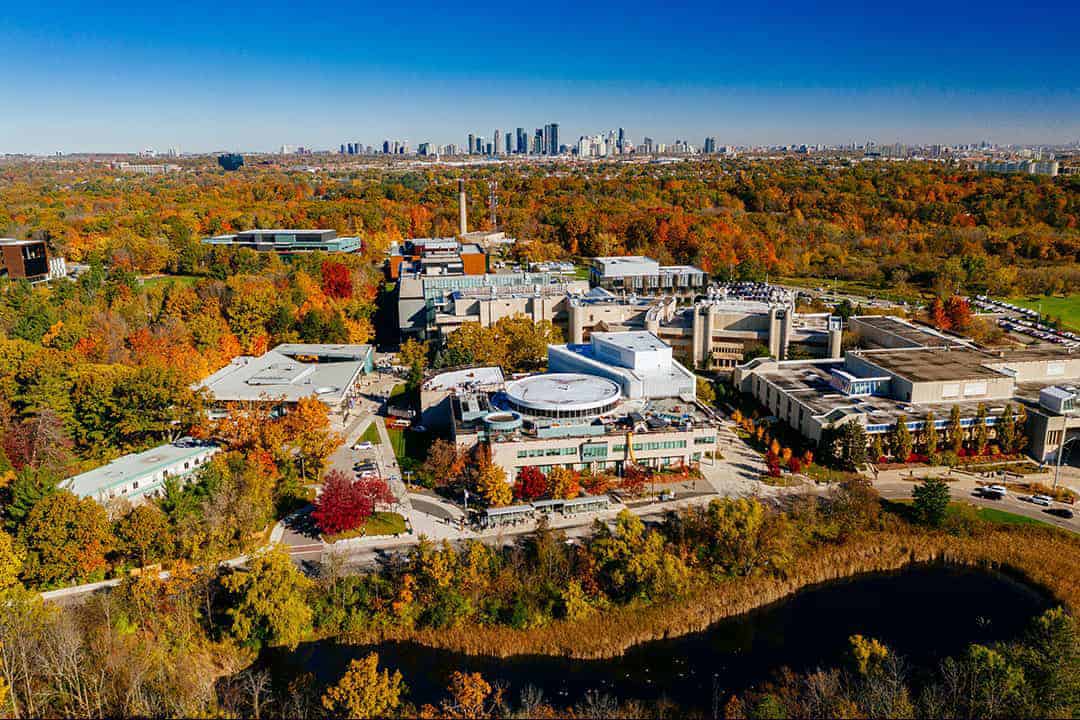We, as students, have it hard enough and should not be the victims who suffer most from our housing crisis. For those of us who are working while studying, we have not been working for long and only have limited funds to secure housing. Moving into your own space for university should not be a luxury.
What if every UTM student could live on or near campus at an affordable price? This seems like a dream today — but it can be a reality with new resources now available to help students get ahead. The Government of Canada recently announced funding for new housing projects on and around university campuses, which could transform student housing options as we know it. I believe that this commitment could make a notable impact in solving the housing crisis if the university — and student representatives like the University of Toronto Mississauga Students’ Union (UTMSU) — seize this opportunity correctly.
Game-changing federal funding for student housing
As UTM students, we know that there are not a lot of places to call home on or near our campus — and when one becomes available, it is often unaffordable anyway. Our housing situation is dire. Students and UTM’s administration have voiced concerns regarding UTM fulfilling its commitment to housing all first-years.
Thankfully, Ottawa is now offering $40 billion in loans for postsecondary institutions, not-for-profit builders, and private home builders to build residences on or near campuses across the country.
While this is great news on the surface, it is not a guarantee that we will see substantial development. The Government of Canada is rightfully playing its part, but we need the involvement of others to make this vision successful. The UTMSU and UTM must seize this opportunity to maximize housing options for its students on its property. Doug Ford’s government is doing little to help right now, but they can incentivize home builders to partner with universities to “get it done” — his coined 2022 slogan — on campus or participate in the federal government’s program near campuses.
I’ve worked in politics, and I’ve been very involved with UTM. Let me be frank: we, the students, must show our student union, the university administration, and the provincial government that we care about this issue and that we know they can play their part in addressing our affordability crisis. Until then, without pressure, we cannot expect anyone to act on this. The responsibility lies on us as students to make our leaders aware. We must push those who are responsible for improving our student experience to take action.
The UTMSU’s role in turning plans into homes
We as UTM students pay the UTMSU to be not only our voice on such matters but also to act as a safeguard to support our student body. The UTMSU has the resources to properly advocate for the things students care about. It can help students with the cost of keeping a roof over their heads as they pursue the right — not the privilege — of higher education. We have even seen other unions, like the UTSU, purchase property for students in urgent need. The UTMSU can engage with this new federal program, home builders, and the university to see more residence options for our students. The money is there to do it, and we know that because of the government’s recent announcement.
With the UTMSU’s multiple millions of dollars in annual revenue, we know it should be able to afford to spend more on housing. I’ll acknowledge the UTMSU’s work with the Canadian Federation of Students to speak with the government on various issues including mental health, but we lack UTM-specific advocacy directly to our leaders at all levels. Why have we let the situation get this bad?
Late last year, Jan Durkiewicz — a member of the UTM Campus Affairs Committee — and I spoke before the City of Mississauga’s Transit Committee, representing student concerns around transit at UTM. We were there as students, acting outside of our scope of responsibility as members of UTM’s Campus Council and Campus Affairs Committee — even though the body most immediately responsible for transit is the UTMSU through the U-Pass program and its relationship with the city. Yet, despite two executives being present in the audience, the UTMSU did not speak. We did.
What I learned in that moment is, like in my experiences with politicians and government, unless we, the students, raise our voices and add accountability through the pressures of conversations, we cannot expect our leaders to fight for the things that can make substantive differences in our lives. We can set a better standard for how the union operates, and we could actually see the UTMSU fulfill its mandate with this recent announcement from the federal government, but we have to, unfortunately, push our leaders to step up to the batting plate if we want to see home runs.
We must engage. We must raise our voices. We must have conversations for us to see change. So, I am encouraging you to do this. Post on social media and tag the UTMSU. Email the union. Visit its offices. Let executives know that we know that the tools to address the housing crisis they claim to care about now exist, and the ball is in their court to start working on the issue.
Take our conversation to social media, and make it known that the UTMSU has an opportunity to change our lives. We can create affordable and available housing for UTM. Will you do your part to help ensure UTM students get their fair share of the $40 billion?
Ehab James is a third-year student at UTM studying political science and sociology. Ehab is a member of the UTM Campus Council, UTM Academic Affairs Committee, UTM Nominating Committee, and the UTM Academic Plan Task Force.



No comments to display.